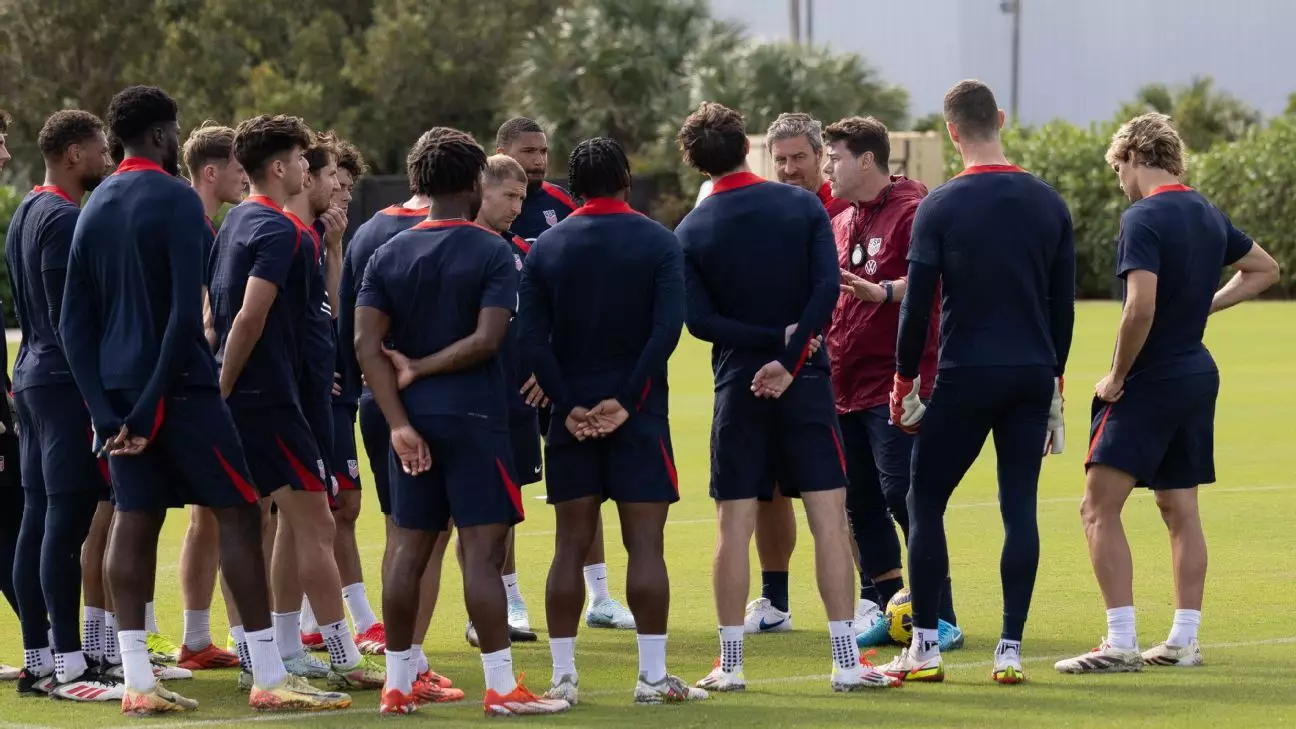Mauricio Pochettino, the head coach of the United States men’s national soccer team (USMNT), has made a strong case for how the January training camp should be viewed within the broader context of team selection and player development. Instead of labeling this camp as an “alternative” team—an often dismissive term suggesting a secondary level of talent—Pochettino underscores its significance as a platform for new and emerging players to showcase their skills and to potentially secure their place in the national roster.
This perspective is not merely a motivational speech; it serves as a cornerstone for building a cohesive squad. The USMNT, like many national teams, often faces the challenge of finding fresh talent amidst established names. Historically, the January friendlies have been utilized to scout players from Major League Soccer (MLS) outside of the FIFA-sanctioned windows. This allows the coaching staff to evaluate players who may otherwise have limited exposure on the international stage.
Pochettino’s emphasis on the necessity for players to view themselves as integral parts of the national team reflects an important psychological aspect of player development. It’s vital for athletes to feel valued and acknowledged, regardless of their previous experience or recognition. When players believe they have a chance to influence the team’s future, they often perform with greater confidence and intensity.
At a press briefing ahead of a friendly match against Costa Rica, Pochettino articulated the importance of utilizing this time to build rapport within the team. He highlighted that the upcoming matches were not just games but a critical assessment period for players to impress the technical staff. “The whole technical team is here, and it’s not the same seeing players in their clubs as it is having them right here in a concentrated setting for two weeks,” he explained. This approach allows for a deeper understanding of player capabilities—both on and off the field.
Pochettino’s method underscores the value of direct engagement, enabling coaches to witness how players interact, respond to tactics, and evolve under pressure. Such an environment promotes not only skill enhancement but also team cohesion, which is crucial when preparing for competitive matches. With insights gained from observing players closely, the coaching staff can make more informed decisions about player selection heading into future competitions.
Historically, the January camp has yielded impressive results, with a notable number of players making their debut during this period subsequently finding their way to World Cup rosters. Since 2002, around 30 players who debuted or received their second cap in January have participated in a World Cup. The recent 2022 squad included nine players who made their first or second appearances in this January window, exemplifying the camp’s potential as a launchpad for future stars.
Pochettino’s comments regarding the intrinsic value of fresh opportunities for players echo a broader philosophy in sports: talent identification must be ongoing. The increased exposure can serve as a stepping stone for athletes aiming to establish themselves within the competitive framework of international soccer.
As the team prepares for matches against opponents like Costa Rica, the significance of this camp isn’t solely about tactical drills and game strategies; it also revolves around instilling a sense of hope and possibility for players. According to Pochettino, it’s crucial for players to feel the urgency and importance of competing. Thus, each moment on the pitch is not just a game—it’s a chance to prove oneself, to contribute to the team’s success, and ultimately to build a legacy within the national team.
Debutants such as Patrick Agyemang and Matko Miljevic serve as case studies in this initiative. Their performances against Venezuela were a testament to the outcomes possible when young athletes seize the moment. As they scored their first international goals, they not only enhanced their careers but also invigorated the team spirit, showcasing that this camp can indeed be a foundation for future stars.
Mauricio Pochettino’s approach to the January camp emphasizes a rigorous evaluation of emerging talent and fosters a culture of inclusivity and ambition in US soccer. This is a significant step forward, not only for the players involved but for the overall trajectory of the USMNT as they prepare for upcoming challenges on the international stage.


Leave a Reply